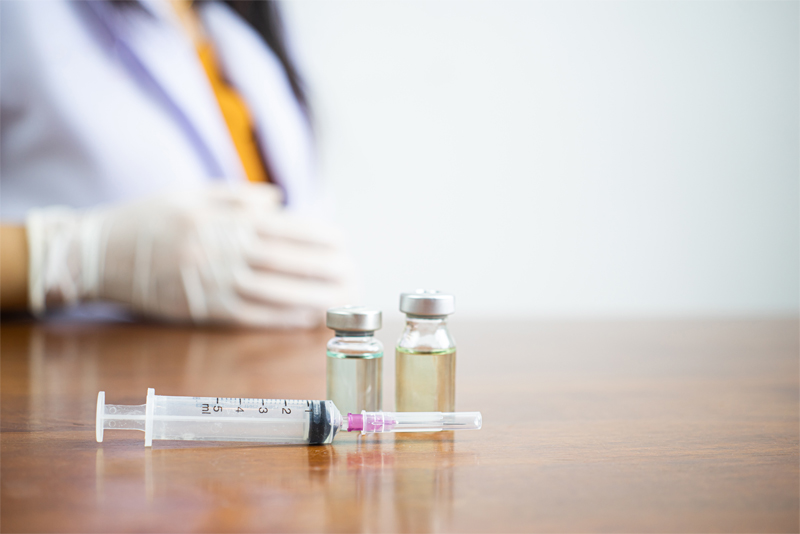
As we’ve decided to have our child vaccinated, it’s highly important that we follow their immunization schedule. Doing so will protect our child even when we’re not physically present. An immunization schedule is a list of vaccines that can either be required or recommended by your child’s doctor.
Below are five reasons why you should follow your child’s immunization schedule.
1. Best Possible Timing
Different vaccines respond to your child differently; there are vaccines that may be too strong for your child’s age to take. It has been recommended that you should be tracking your child’s vaccination schedule so you can identify which type of vaccine is appropriate for your child’s age. This will allow your child to be protected based on what disease they’re more likely to be exposed to according to their age.
With the right time of immunization, you’ll be confident that your child can handle the intensity of the vaccine and may be protected from diseases. Take note that some vaccines are made to be renewed yearly, so it’s best to consult with a professional or your local doctor with regards to the vaccines that your child should regularly take.
2. Know What and What Not To Give
Children who are too young to have received any vaccinations are referred to as ‘exemptible,’ and they’re usually placed on an immunization schedule for their specific age group. However, some states will still allow children who are below the age of one to get these vaccines at their discretion.
Immunization schedules entail that parents must take it upon themselves to make sure that their children are receiving all of the appropriate vaccines, particularly in the case of the elderly and infants. For this reason, it’s important to ensure that you always have the full immunization schedule at hand. This will help you make sure that you’ll know the vaccination options for your child and what vaccines you shouldn’t give.
3. Immediate Protection
It’s important for parents to realize that some vaccines shouldn’t be given until the child is between six months to two years of age. This is the age when children will begin to build up immunity to the different diseases that they’ll be exposed to. It’s also common for children to be re-immunized in between their first and second immunizations.
An immunization schedule may keep your child protected from diseases at a very young age. As much as we try to protect our children, it’s difficult to keep them protected all the time, especially since diseases can’t be seen through the naked eye. By keeping track of your immunization schedule, you’ll get to keep your child protected from diseases even if you’re not physically there with them, keeping them healthy and well.
Changing the immunization schedule can be one of the most important decisions you make for your child’s health. Not only can your child’s life be dramatically altered by having a different schedule but your child’s education as well.
It’s crucial that you find the right schedule for your child before your child begins school so that they can go to a school being immunized against measles and the other common childhood diseases. If you have children in school who haven’t been immunized against measles and other contagious diseases, you need to do something about it to provide protection for your child.
4. Keep Track of Re-immunization
With your scheduled immunization, all dosage should be taken so that you can have the full protection your child needs. Take note that the dosages are not to be taken simultaneously but they’re scheduled usually months apart, depending on the vaccine.
There are several vaccines that require the entire calendar year to be covered. These include seasonal flu shots, chickenpox vaccines, booster shots for seasonal flu, and mumps and measles vaccines. However, some vaccines require a specific month or even day to be covered for them to be effective.
You must follow your child’s immunization schedule so that they can be protected in the long run as some vaccines are valid for their entire lifetime and having complete dosages ensures that they’re healthy and safe.
5. Protects More Than Your Child
Having your child vaccinated doesn’t only mean that you get to protect your child but also protect people around you. When your child is vaccinated, the chances of catching any illnesses are reduced, hence, they won’t be spreading diseases to other people, which is particularly dangerous for people who have a weak immune system and newborns. With this, you’ll be able to promote a healthier lifestyle for the entire family as more people will be protected even if a single person has been immunized.
However, it should be noted that just because one member of the family is already vaccinated, it doesn’t mean that others should skip it. For maximum protection, vaccination intake should be complete for each person.
Conclusion
Immunizations are not the only way to protect oneself against illness and diseases. One can also take preventive measures at home by simply making sure that their children and pets are vaccinated against any possible diseases. There are also things like bedding, pillows, blankets, clothing, and toys that need to be cleaned and disinfected to prevent diseases, ensuring that your house has a healthy environment.
There is no shame in wanting to follow your immunization schedule and not having the time or money to do so. There are many resources available to parents that can help with educating them on how to make these important decisions. Also, it’s important to keep in mind that even with immunizations, one will always need to seek medical attention if they become sick. Although the vaccines used to treat immunizations are effective, they’re not perfect. In other words, one will always need a healthy immune system to protect oneself from sicknesses and illnesses.
Comments
comments